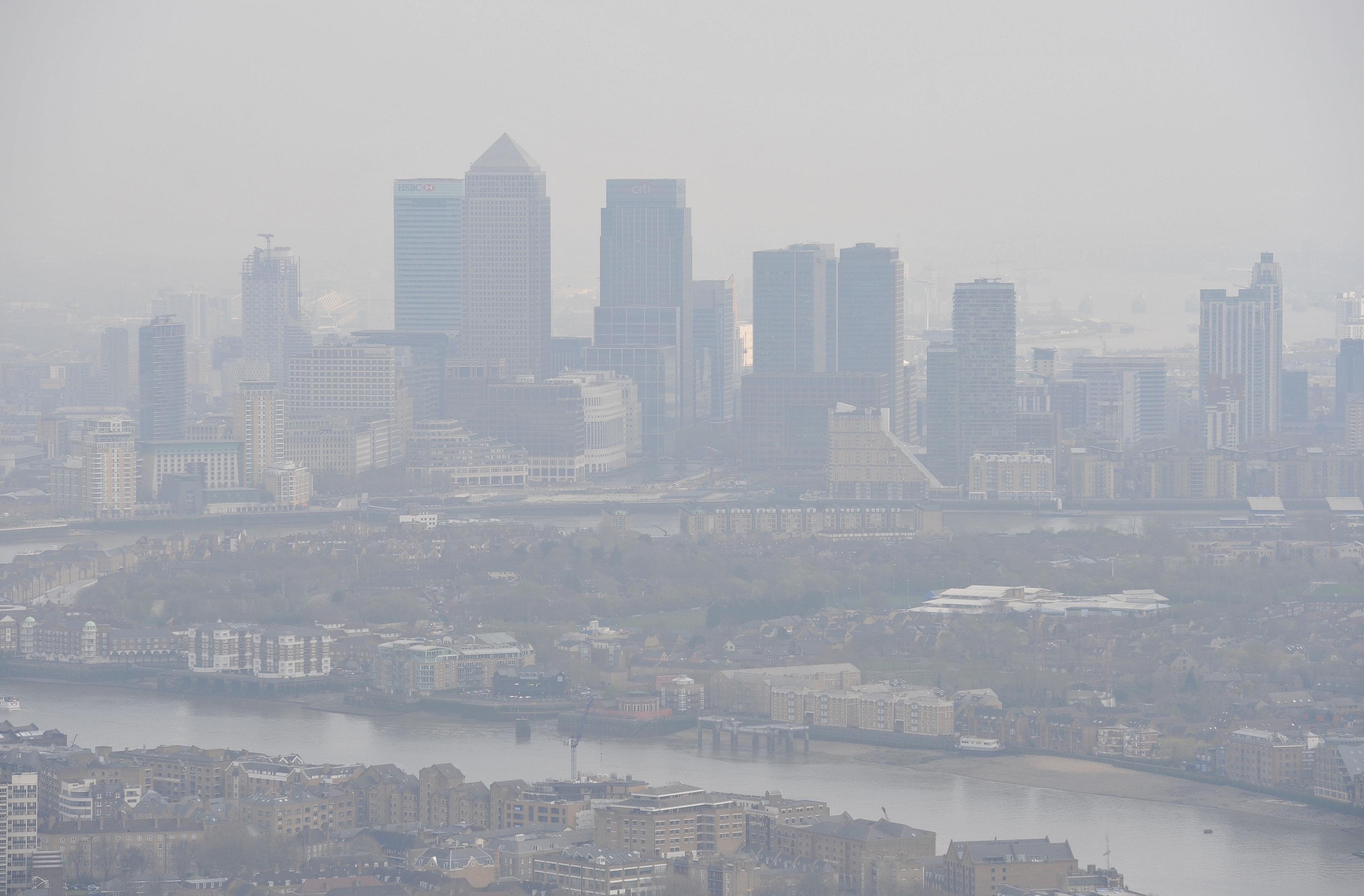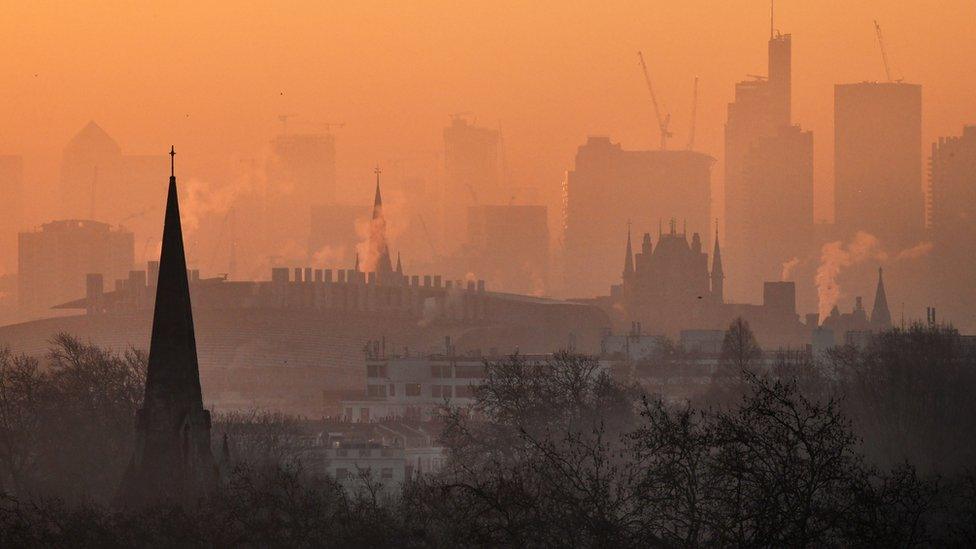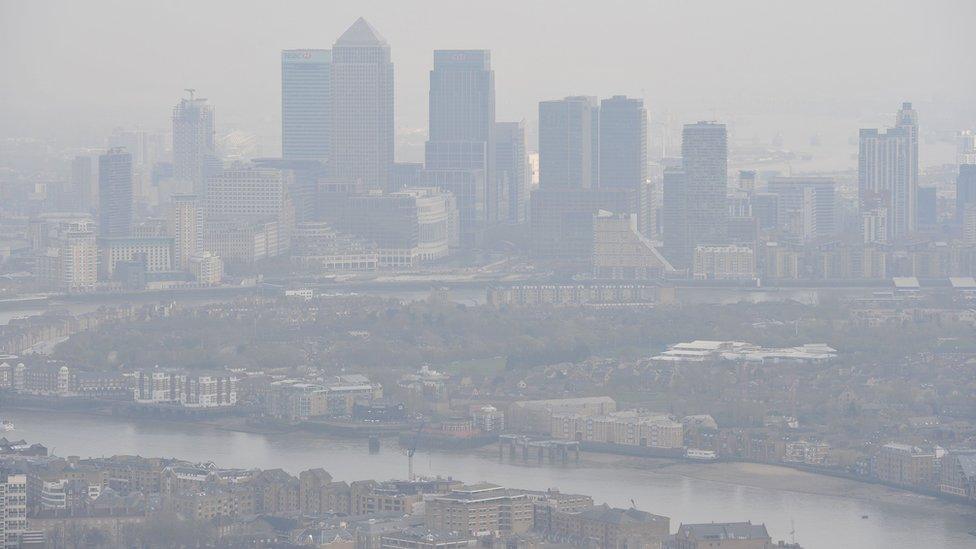London high pollution alert extended to Wednesday

City Hall is issuing a high alert for pollution
At a glance
The alert by City Hall has been issued due to warm weather and pollution being blown towards London
Londoners are being urged to avoid "unnecessary car journeys"
It comes as the mayor announces a review into how the capital can adapt to climate change
The report will focus on how technology could help
- Published
A "high" air pollution alert for London has been extended to Wednesday by City Hall.
It said local emissions had combined with warm weather and winds blowing pollutants from the continent towards the capital.
Imperial College London forecasters advised the Mayor of London's office to issue the alert, the second this year, due to a strong likelihood of high ozone levels, City Hall said.
The last alert was in January, with one day of "high" pollution followed by three days of "moderate" air pollution.
Londoners are being asked by the mayor's office to consider choosing to walk, cycle or take public transport, and to "avoid unnecessary car journeys, stop their engines idling and refrain from burning wood or garden waste", a spokesperson said.
According to Imperial College London, those with lung or heart problems should reduce strenuous physical exertion, particularly outdoors.
It said older people should also reduce physical activity, and people with asthma may need to use their reliever or inhaler more often.
Wednesday will be the 202nd day of either moderate or high levels of air pollution in London over the past five years, City Hall said.
In total, there have been 15 high pollution days and 186 moderate pollution days since the start of 2018.
The moderate and high daily thresholds are based on the national Daily Air Quality Index (DAQI) from the Department for Environment Food and Rural Affairs (Defra).
'Climate ready'
The alert was issued on Tuesday, the same day that the mayor announced an independent review into how the capital can better utilise technology to adapt to climate change.
Speaking at the start of London Tech Week, the mayor said the London Climate Resilience Review would explore how the capital could harness technology – including AI – to better adapt to, and prepare for, the impacts of a changing climate and future-proof the capital against its devastating impacts.
It would then recommend what more could be done to protect against climate risks such as wildfires, flooding and extreme heat.
The review is being led by Emma Howard Boyd CBE, a UN Global Ambassador for the Race to Resilience and former Chair of the Environment Agency.
She said: “London needs to be climate ready.
"During 2022's heatwave, London hospitals had to cancel operations as systems crashed in the record-breaking heat. In 2021, flash flooding stopped people getting to work as roads and underground stations were inundated."
Follow BBC London on Facebook, external, Twitter, external and Instagram, external. Send your story ideas to hellobbclondon@bbc.co.uk, external
More on pollution in London
- Published23 March 2022

- Published17 April 2023

- Published27 April 2023
